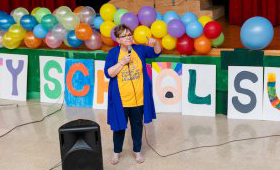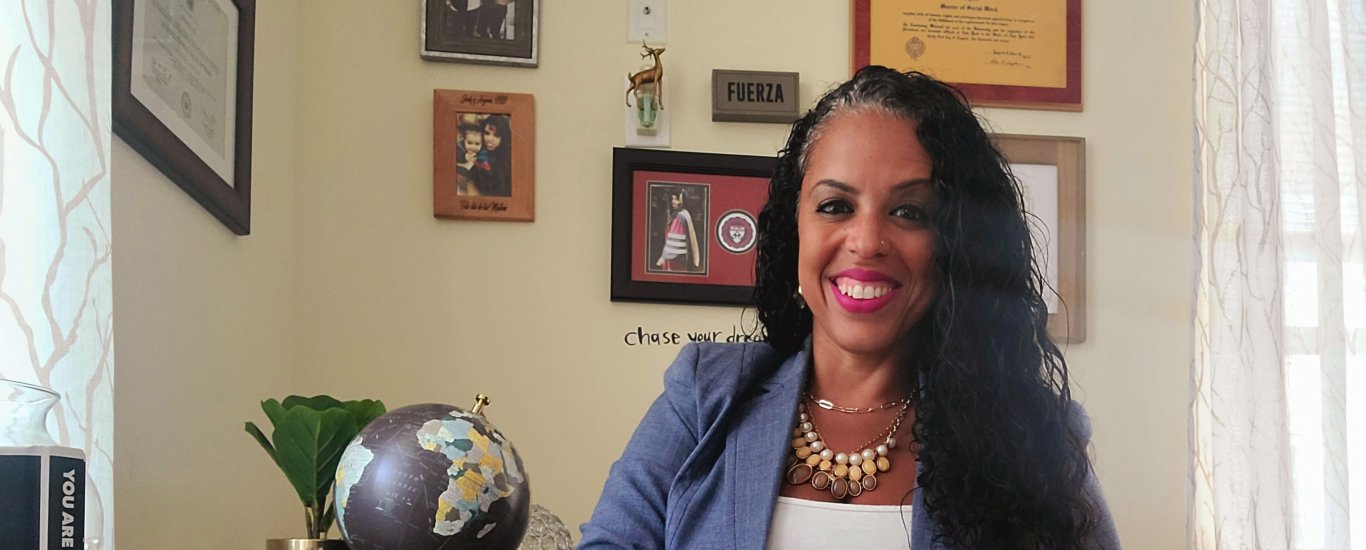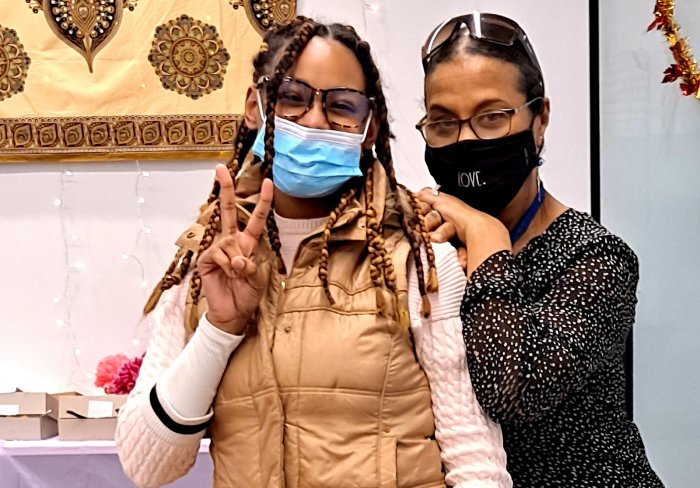“Are there other people like us? People who have overcome adversities like ours?”
Judith Gil would get that question from her son, Argenis, throughout his childhood. She promised him that one day, when she went back to school to pursue her doctorate, answering that question would be the focus of her dissertation. She would study what happened to teenage mothers, like herself, later in life.
Judith, who is now the Deputy Director of Mental Health at Children’s Aid, was raised in Brooklyn’s Bushwick neighborhood. Her parents had immigrated from the Dominican Republic in 1973 to start their family in the United States. As the oldest of four siblings, Judith felt the weight of expectations of her parents, her community, and her culture.
Throughout her life, she was a mostly straight-A student. She expected to graduate high school, then college, then go to work and, as culturally expected, start a family. But at the age of 16, she had to reevaluate her plan when she learned that she was pregnant.
Fortunately, her family and a devoted school counselor surrounded her with support, and she was able to balance raising her baby boy with her studies in both high school and college.
“I always believed that education was the key to overcoming negative circumstances," Judith said. “I wasn’t going to allow having a baby stop me from pursuing my academic goals, I was always academically inclined. In fact, having my son gave me an extra piece of motivation: I wanted to model a good life and good values for him.”
But Judith realized that many teenage mothers – especially those from Black and Latino communities – did not have the same outcomes as her. In fact, only 2% of teenage mothers graduate from college, and those numbers are even smaller for women from historically marginalized communities. So Judith decided to change those outcomes.
After working in nonprofits for a few years, she went back to school to get a master’s in clinical social work from Fordham University. She began her counseling career with a focus on adolescents and teenagers.
“I used to joke with former supervisors that I didn’t want any referrals for young kids,” Judith said. “I wanted the challenging teenagers. They were a population I deeply connected to. I could relate to their experiences and their backgrounds.”
She started working for Children’s Aid in 2013 as a therapist at the Bronx Health Center. A year later, she returned to school again, this time to pursue her doctorate in advanced clinical social work from the University of Pennsylvania. During her interview, she explained her personal history, and how her research could help shed light on this important but often overlooked segment of the population.
“I was emotionally invested,” she said. “I wanted to give a voice to other women who have had the experience of being a teenage mother, and particularly Black and brown women. I never had counseling opportunities when I was a teenager, and I wanted to make sure access and outcomes would be better for the next generation.”
Judith, who identifies as Afro-Latina, knew that she was unique among the students in this doctoral program at an Ivy League university. She felt it every Tuesday night when she made the drive from New York to attend classes with her mostly white peers.
“There was a pressure to represent for my culture and people who look like me, but there was also pride,” she said. “I’m my ancestors’ wildest dreams.”
Judith no longer sees clients in her current role at Children’s Aid, but she’s been able to expand her influence and her positive impact by overseeing all of our mental health services. And her son, Argenis, who is now 28, is a college graduate with a degree in finance who works at Morgan Stanley.
When she thinks back to the challenges she faced in high school, she wishes she could tell her younger self that having Argenis would be the best thing that happened in her personal life – and that he made her professional life all the more fulfilling and rewarding as well.
“There’s no Dr. Gil,” she said, “without teenage mom Judith Gil.”







